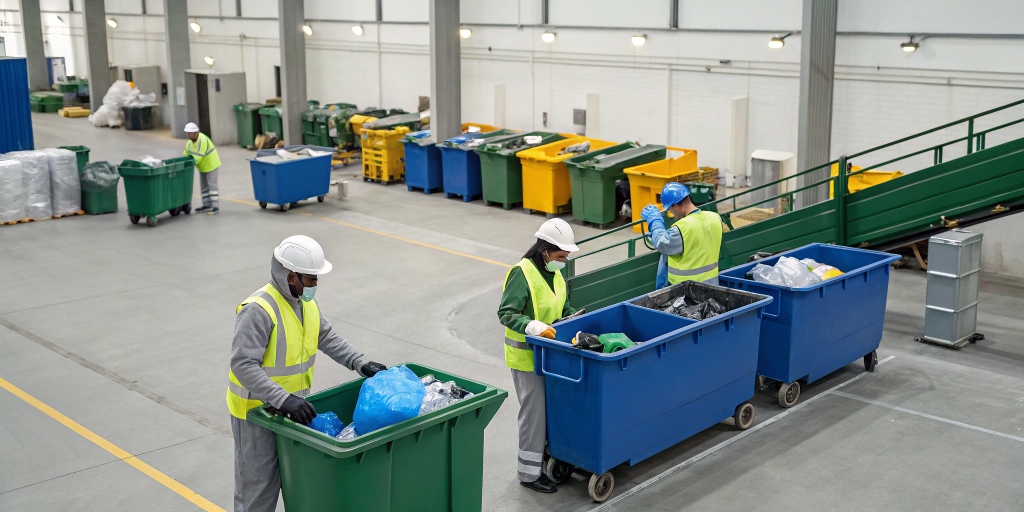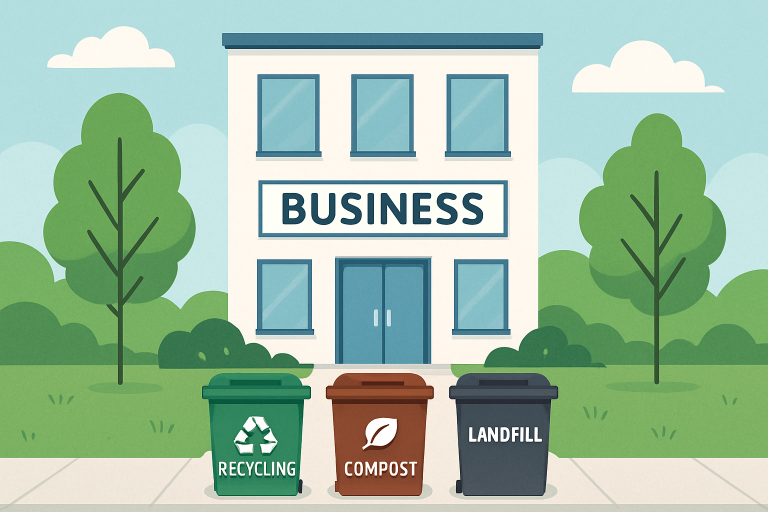
Safe and Sustainable Waste Management Practices for Businesses
Key Takeaways
- Effective waste management is crucial for ensuring compliance, maintaining public well-being, and promoting sustainability.
- Modern methods, such as eco-friendly disposal and waste minimization, are being rapidly adopted by businesses that strive to reduce their environmental footprint.
- Education, technological innovation, and strategic planning pave the way for cost savings and more sustainable operations.
- Aligning with environmental regulations and engaging the team are both fundamental for safe outcomes.
- Innovative solutions, such as waste audits, advanced recycling, and safe handling of hazardous materials, are shaping the future of waste management globally.
The Changing Landscape of Business Waste Management
Today’s businesses face increasing pressure to handle waste with the utmost care for people, regulations, and the planet. As environmental laws become stricter, organizations of all sizes are expected to evolve their waste practices to meet both legal and ethical standards. Improving waste processes not only helps avoid costly violations but also builds a reputation for social responsibility in customers’ eyes. For instance, companies prioritizing efficient waste handling frequently turn to reliable services, such as sewer cleaning Detroit, as a solution for responsible disposal and compliance with local codes.
Public agencies like the U.S. Environmental Protection Agency encourage organizations to focus on prevention and reuse before considering recycling or landfill. These increasingly nuanced demands signal a fundamental shift, requiring companies to invest in better practices and innovate beyond outdated, wasteful systems.
Common Challenges When Managing Waste
Waste management in a business setting is often more complicated than most realize. Organizations struggle with high disposal fees, uncertainty around compliance requirements, and resistance to changing long-standing habits. Sorting waste incorrectly can cause entire batches of recyclables to be rejected, and hazardous materials introduce additional layers of liability and protocol. Businesses that overlook effective sorting and correct labeling quickly see increased costs and reputational harm.
Staff resistance, lack of adequate training, and logistical hurdles—like accessing appropriate waste partners—are frequent obstacles. Nonetheless, overcoming these challenges is possible by seeking expert guidance, utilizing updated training programs, and partnering with experienced waste service providers.
Developing a Practical Waste Management Plan
Establishing a solid waste management plan begins with transparency and data: a waste audit reveals the true scale and nature of an organization’s output. Once quantified, businesses can set actionable targets—whether through reducing total waste, boosting compost or recycling rates, or safely managing hazardous substances. Consulting local guidelines and industry experts ensures strategies remain both legal and effective, preventing unintentional violations. Periodic reviews and updates enable organizations to maintain momentum and address emerging waste streams as their operations expand.
Modern Strategies to Minimize Waste
Forward-thinking companies embrace new technologies and methods to reduce their footprint. Popular techniques include smarter recycling (like single-stream systems), integrating composting for organic waste, and reusing materials when feasible. Studies highlighted by Forbes indicate that optimizing waste collection and rethinking packaging can significantly reduce costs and mitigate environmental harm. Businesses also benefit from forming alliances with local recycling centers, giving new purpose to discarded materials and amplifying impact throughout the community.

Dealing with Hazardous Materials
When businesses generate hazardous waste—such as chemicals, batteries, or industrial cleaners—they must follow stringent government rules. Proper identification, secure containment, and strict documentation are crucial for preventing penalties and ensuring the safety of individuals. Trained staff should handle dangerous substances, with frequent review of best practices and certifications to ensure readiness. Collaborating with certified disposers and scheduling regular site inspections further reduces risk, demonstrating a proactive commitment to safety and regulatory expectations.
The Role of Technology in Waste Solutions
The adoption of cutting-edge technology is transforming commercial waste solutions. GPS tracking on fleet vehicles improves route efficiency, fill-level sensors prevent overflows, and AI-driven sorting automates previously manual tasks, vastly decreasing contamination rates. Data analytics platforms enable managers to predict waste trends and optimize scheduling or resource allocations, leading to lower costs and an overall leaner environmental footprint. Insights from sources like the New York Times highlight how robotics and AI are making recycling smarter and more effective than ever.
Educating Your Team for Long-Term Results
Sustainable waste management relies on engaged, informed staff. Training sessions teaching safe sorting, storage, and emergency response set a dependable foundation. Visual aids, regular reminders, and open feedback channels cultivate a shared sense of responsibility, while incentivizing correct behaviors can further boost compliance. With clear communication and empowerment, companies see higher adherence to policies and more rapidly achieve their waste reduction goals.
Looking Forward: Sustainable Waste Practices
The rise of the circular economy means that successful businesses aren’t just disposing of waste—they’re finding new ways to reuse it. This not only fulfills regulatory requirements but also meets the values of today’s more environmentally conscious consumers. According to industry research, investing in green practices yields both long-term savings and new business opportunities, firmly establishing sustainability as a competitive advantage. Collaboration between sectors, continuous learning, and transparent progress tracking are all vital for maintaining leadership in this evolving field.
Final Thoughts
Safe, responsible waste management is a foundation for any reputable business. From leveraging reliable providers like sewer cleaning to investing in modern technologies and team education, these actionable steps safeguard public health, reduce operations costs, and protect the planet. Staying current with trends and partnering with trusted industry news sources, such as Waste Dive, allows businesses to continually improve their practices and plan for the future with confidence.


Average Rating